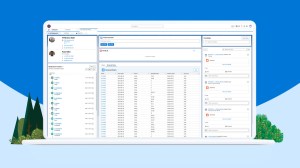Today, Salesforce announced new innovations including Consumer Goods Cloud for Service, Trade Promotion Effectiveness dashboards, and Mulesoft Direct for Consumer Goods. These innovations help drive top and bottom line growth, increase customer satisfaction, and more effectively manage the billions of dollars brands spend on trade promotion with Einstein AI and automation.
Significance: The consumer goods (CG) industry is facing tightening margins amid inflationary pressures. In fact, 68% of industry leaders say improving operating margins will be their biggest challenge in 2023, and 90% of CG companies say they are planning to make investments in margin improvement and cost transformation. Consumer Goods Cloud helps companies seamlessly connect planning and execution for greater efficiencies, lower costs, and increased revenue with the full power of Salesforce CRM.
What’s new:
- With the new AI-powered Consumer Goods Cloud for Service, service agents can:
- Access real-time account, store, and product data within one portal to help streamline every customer service interaction.
- Increase account sales and topline revenue when providing customer service with penny-perfect pricing and integrated telesales capabilities for upselling opportunities.
- For example, the call center of a beauty company can quickly resolve inquiries while upselling accounts on new products from the same service console.
- Reduce costs, increase efficiency, and accelerate case resolutions with Service GPT and its trusted AI capabilities like conversational chat bots, generated knowledge articles, and automated case summaries.
- New data-powered Trade Promotion Effectiveness dashboards are now pre-built into Consumer Goods Cloud to give companies access to valuable insights from their data. This helps companies identify top grossing promotions, eliminate inefficient trade spend, and optimize customer business planning and forecasting.
- With MuleSoft Direct for Consumer Goods, pre-built integrations enable teams to:
- Connect critical data from other Enterprise Resource Planning (ERP) and Product Information Management (PIM) systems in a few clicks using APIs directly in Consumer Goods Cloud.
- Accelerate the implementation of trade promotion management to improve promotion effectiveness and optimize ROI.
- For example, a snack brand company can easily integrate product and account information from its ERP and Salesforce to make informed planning decisions on its next trade promotions in one place.
Salesforce perspective: “Consumer goods leaders are dealing with margin pressures, inflation and rising customer service expectations, all of which are impacting their bottom line and forcing them to focus on profitable growth and efficiency. With these new telesales and planning capabilities powered by AI, data, and CRM, consumer goods companies can offer better customer service experiences while also growing revenue.” – Kishan Chetan, SVP & GM, Retail & Consumer Goods
With these new telesales and planning capabilities powered by AI, data, and CRM, consumer goods companies can offer better customer service experiences while also growing revenue.
Kishan Chetan, SVP & GM, Retail & Consumer Goods
Fast facts:
- Consumer goods leaders rank customer service as the second most important driver of customer loyalty, behind product quality.
- Despite spending nearly $500 billion on trade spend annually, 80% of consumer goods executives are still unhappy with their promotion strategy.
- 60% of promotions go unevaluated and 23% of companies still manage trade campaigns with spreadsheets, leading to inefficient manual entry and disconnected systems.
Learn more:
- Discover all the capabilities of Consumer Goods Cloud here
- Register now to learn how Casper is using Salesforce to transform its service center
- Visit Salesforce+ to see Clif Bar’s service story















